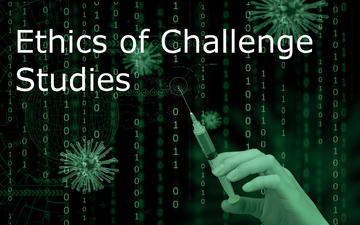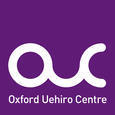Ethics of Challenge Studies

Challenge studies are a form of research where healthy volunteers are deliberately challenged with an infection in order to enable research to take place. It is now being used to enable COVID-19 vaccine research to better establish the efficacy of vaccine candidates, although it is controversial given the risk of harm to volunteers. In this series of papers, we explore the ethics of challenge studies.
Resources
Publications
Bambery, B., Savulescu, J., Selgelid, M., Weijer, C., Pollard, A., (2016) Ethical Criteria for Human Challenge Studies in Infectious Diseases, Public Health Ethics 9 (1): 92-103
(Cited in World Health Organisation’s Key criteria for the ethical acceptability of COVID-19 human challenge studies, 6 May 2020).
Grimwade, O., Savulescu, J., Giubilini, A., Oakley, J., Osowicki, J., Pollard, A. and Nussberger, A., (2020). 'Payment in Challenge Studies: Ethics, Attitudes and a New Payment for Risk Model', Journal of Medical Ethics, Vol: 46(12): 815–826 [PMC7719900]
Schaefer, GO. , Tam, C., Savulescu,J., Voo, TC., (2020). COVID-19 vaccine development: Time to consider SARS-CoV-2 challenge studies?, Vaccine 38,(33): 5085-5088
James E Meiring, Alberto Giubilini, Julian Savulescu, Virginia E Pitzer, Andrew J Pollard. (2019) Generating the Evidence for Typhoid Vaccine Introduction: Considerations for Global Disease Burden Estimates and Vaccine Testing Through Human Challenge, Clinical Infectious Diseases 69 (Issue Supplement 5): S402–S407
Anomaly, J., Savulescu, J., (2019). Compensation for Cures: Why we should a premium for participation in ‘challenge studies’, Bioethics 33(7): 792–797.
Pollard, A., Savulescu, J., Oxford, J., Hill, A., Levine, M., Lewis, D.J , Read, R. C., Graham, D, Sun, W., Openshaw, P., Gordon, S. (2012), Human microbial challenge: the ultimate animal model, Lancet Infectious Diseases 12(12):903-5.
YouTube
Vaccine policies and challenge trials: the ethics of relative risk in public health
In this St Cross Special Ethics Seminar, Dr Sarah Chan explores three key areas of risk in ‘challenge trials’ – the deliberate infection of human participants to infectious agents as a tool for vaccine devlopment and improving our knowledge of disease biology. Dr Chan explores a) whether some forms of challenge trials cannot be ethically justified; b) why stratifying populations for vaccine allocation by risk profile can result in unjust risk distribution; and c) how comparing these cases and the evaluation of relative risk reveals flaws in approach to pandemic public health (18 November 2021).
https://www.youtube.com/embed/9ZKFqeJzvWMReports and Policy
Report commissioned by 1Day Sooner (March 2023).
'The Ethics of Controlled Human Infection Model Studies for Mitigating Pandemic Risks'
Authors: Bridget Williams, Josh Morrison, Dominic Wilkinson, Julian Savulescu
Link to report
1Day Sooner aims to reduce the global burden on infectious disease and avert future pandemics by working to accelerate the development and implementation of vaccines, treatments, and mechanical interventions.
They do so as advocates for people who want to be in high-impact medical studies, including human challenge studies.



